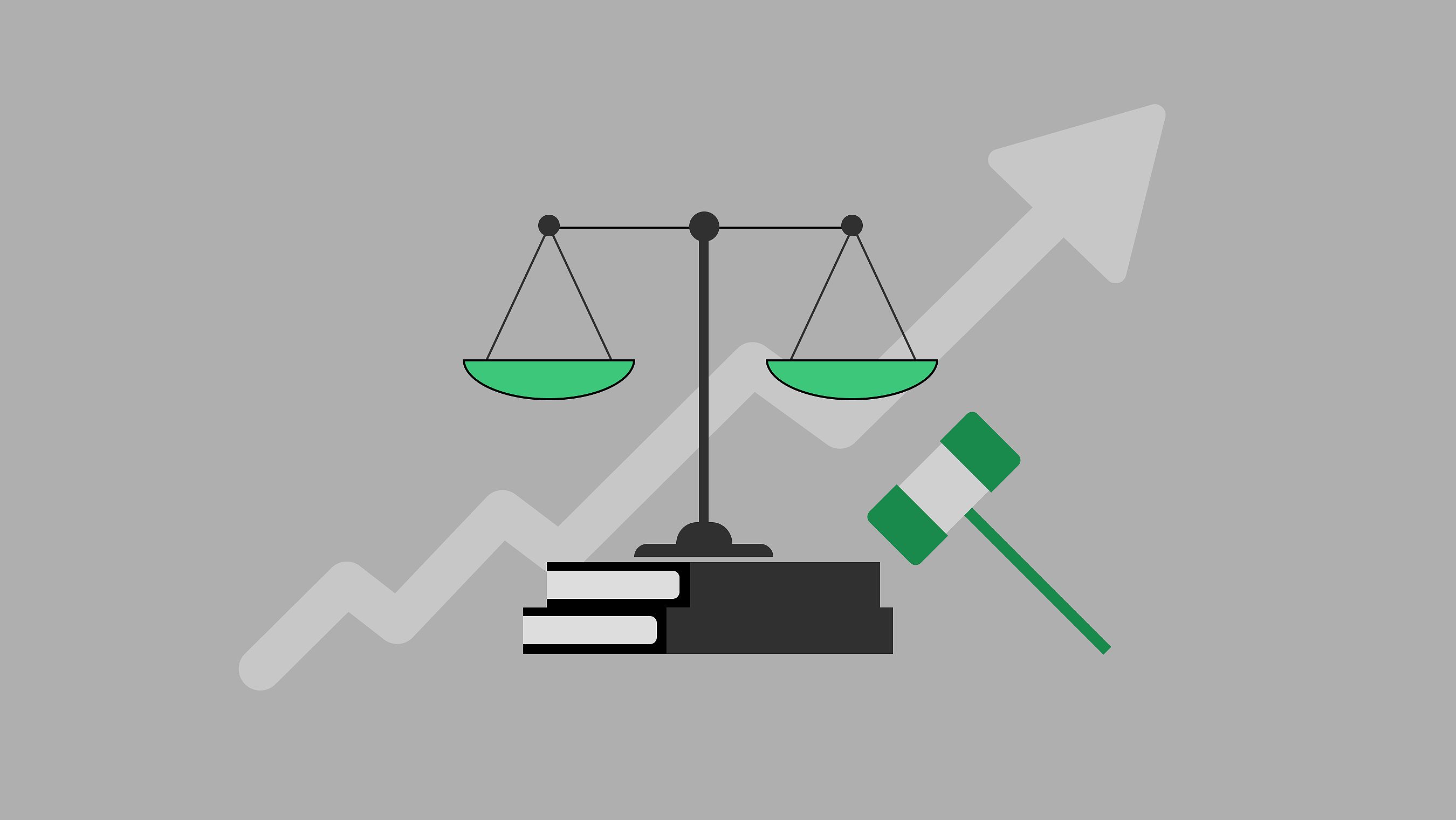As the world embraces the digital revolution, Nigeria has emerged as a frontrunner in cryptocurrency adoption, with an estimated 10.3% of the population owning digital assets. This surge in interest has sparked a dynamic dialogue around the legal status of crypto trading in the country, leaving many investors eager to navigate this evolving landscape. This guide examines the intricacies of the Nigerian crypto ecosystem, exploring the regulatory environment, the crypto exchange landscape, and the best practices for buying, selling, and storing digital assets. We will answer the question: is crypto trading legal in nigeria, providing you with the knowledge to make informed decisions and capitalize on the opportunities presented by the growing crypto market in Nigeria.
Is Crypto Trading Legal in Nigeria? The Evolving Legal Landscape
Regulatory Changes and Developments
The legal status of cryptocurrency in Nigeria has been a subject of constant change, reflecting the government’s evolving approach to this nascent and rapidly transforming industry.
In 2021, the Central Bank of Nigeria (CBN) imposed a ban on banks and financial institutions from facilitating crypto transactions, citing concerns over money laundering and terrorism financing. This move sent shockwaves through the Nigerian crypto community, leaving many investors uncertain about the future of digital assets in the country.
However, in a surprising turn of events in December 2023, the CBN lifted the banking ban, paving the way for a more regulated approach to the crypto industry. This shift in stance was largely driven by the proactive efforts of the Nigerian Securities and Exchange Commission (SEC), which has taken the lead in shaping the legal framework for digital assets.
 The Current Crypto Law & Regulation in Nigeria as of 2024
The Current Crypto Law & Regulation in Nigeria as of 2024
SEC Regulations and CBN Guidelines
In 2022, the SEC introduced a comprehensive set of regulations, defining cryptocurrencies and other digital assets as securities and outlining guidelines for crypto exchanges, initial coin offerings (ICOs), and blockchain-based offerings. Under these regulations, crypto exchanges operating in Nigeria must obtain a license, maintain a minimum paid-up capital of 500 million Naira (approximately $553,000), and adhere to strict know-your-customer (KYC) and anti-money laundering (AML) measures.
Complementing the SEC’s efforts, the CBN has released guidelines for banks opening cryptocurrency accounts. While banks are still prohibited from holding or trading virtual assets on their own behalf, they can now facilitate cryptocurrency transactions for customers, provided they comply with the KYC and AML requirements.
Capital Gains Tax on Digital Assets
The regulatory landscape in Nigeria has also introduced a 10% capital gains tax on the disposal of digital assets, including cryptocurrencies. This tax applies to both individuals and businesses, underscoring the government’s recognition of the growing crypto market and its desire to generate revenue from it.
 Crypto Regulation In Nigeria
Crypto Regulation In Nigeria
Navigating the Crypto Exchange Ecosystem in Nigeria
Choosing a Licensed and Regulated Exchange
As the legal framework for cryptocurrency in Nigeria continues to evolve, the crypto exchange landscape has also undergone a transformation. Nigerian investors now have access to a growing number of licensed and regulated platforms, each offering unique features and services.
When choosing a crypto exchange in Nigeria, it’s crucial to prioritize those that have obtained the necessary licenses and registrations from the SEC and the Corporate Affairs Commission (CAC). These licensed exchanges are required to comply with the SEC’s regulations, ensuring they maintain robust KYC and AML protocols to protect investors.
 Explore crypto in Nigeria, its legal status, and how regulatory changes are shaping the digital future of Africa’s largest economy.
Explore crypto in Nigeria, its legal status, and how regulatory changes are shaping the digital future of Africa’s largest economy.
Reputation and Customer Service
Reputation and customer service are also paramount considerations. Researching an exchange’s track record, user reviews, and customer support can help investors identify platforms that are trustworthy, secure, and responsive to their needs.
Benefits of a Reputable and Regulated Exchange
By selecting a reputable and regulated crypto exchange, Nigerian investors can navigate the market with confidence, knowing that their transactions and assets are safeguarded within a compliant ecosystem.
Navigating the Crypto Buying, Selling, and Storage Landscape
Opening a Crypto Account
Once Nigerian investors have identified a licensed and regulated crypto exchange, the process of buying, selling, and storing digital assets becomes the next critical step.
Opening a crypto account typically involves completing the required KYC and AML verification, as well as funding the account using approved payment methods. This ensures compliance with the regulatory framework and helps protect against financial crimes.
Buying and Selling Cryptocurrencies
When it comes to buying and selling cryptocurrencies, investors will need to familiarize themselves with the exchange’s trading platform, which often includes features like order placement, trading pairs, and transaction fees. Understanding these nuances can help investors make informed decisions and execute their trades efficiently.
Securing Cryptocurrency Holdings
Securing one’s cryptocurrency holdings is another crucial consideration. Nigerian investors can choose from various storage options, such as hot wallets (online), cold wallets (offline), and hardware wallets. Each method offers different levels of security and convenience, and investors should carefully weigh their needs and risk tolerance before selecting the most suitable storage solution.
Navigating the Challenges and Opportunities in the Nigerian Crypto Landscape
Promising Future and Potential Benefits
As the Nigerian government continues to embrace a more regulated approach to cryptocurrency, the future of the crypto industry in the country appears promising. This shift signals a recognition of the potential benefits that digital assets can bring, including increased investment, job creation, and economic development.
Challenges and Concerns
However, the road ahead is not without its challenges. Volatility, scams, and regulatory uncertainty remain concerns that both investors and policymakers must navigate. Continued efforts to educate the public, strengthen security measures, and provide clear guidelines for the crypto industry will be crucial in realizing the full potential of this digital revolution.
Innovative Use Cases and Growth Potential
Despite these hurdles, the growing interest and adoption of cryptocurrency in Nigeria suggest that the country is poised to become a key player in the global crypto ecosystem. Innovative use cases, such as cross-border payments, remittances, and decentralized finance (DeFi), have the potential to transform the Nigerian financial landscape, creating new opportunities for economic growth and financial inclusion.
FAQ
What are the risks associated with crypto trading in Nigeria? The main risks associated with crypto trading in Nigeria include volatility, scams, and regulatory uncertainty. Investors should be cautious of unregulated platforms and stay informed about the latest developments in the regulatory environment to avoid potential pitfalls.
How can I avoid crypto scams in Nigeria? To avoid crypto scams in Nigeria, investors should thoroughly research any platform or investment opportunity, verify the legitimacy of the entity, and be wary of promises of outsized returns or get-rich-quick schemes. Consulting with financial advisors can also help identify and avoid potential scams.
What are the tax implications of crypto trading in Nigeria? In Nigeria, a 10% capital gains tax is applicable on the disposal of digital assets, including cryptocurrencies. Investors should maintain detailed records of their transactions and consult with tax professionals to ensure they comply with the tax regulations.
Where can I find more information about crypto regulations in Nigeria? For the latest updates on crypto regulations in Nigeria, investors can visit the websites of the Nigerian Securities and Exchange Commission (SEC) and the Central Bank of Nigeria (CBN). These regulatory bodies provide comprehensive information on the legal framework, guidelines, and compliance requirements for the crypto industry.
Conclusion: Navigating the Crypto Frontier in Nigeria
The legal status of crypto trading in Nigeria has undergone a remarkable transformation, evolving from a complete ban to a more nuanced and regulated approach. As the government’s stance shifts, Nigerian crypto investors find themselves navigating an increasingly complex, yet promising, landscape.
By understanding the legal landscape, complying with the regulatory framework, and working with licensed and reputable crypto exchanges, Nigerian investors can capitalize on the opportunities presented by the growing crypto ecosystem. The future of cryptocurrency in Nigeria holds immense potential, with the promise of increased investment, innovation, and economic growth.
However, the journey ahead is not without its challenges. Volatility, scams, and regulatory uncertainty remain obstacles that investors must navigate with vigilance and caution. Staying informed, seeking professional guidance, and embracing the evolving regulatory environment will be key to success in this dynamic financial frontier.
As Nigeria continues to embrace the digital revolution, the country’s crypto market is poised to become a driving force in the global crypto ecosystem. By harnessing the power of these innovative technologies, Nigerian investors can play a pivotal role in shaping the future of finance, unlocking new possibilities for financial inclusion, cross-border transactions, and economic prosperity.

